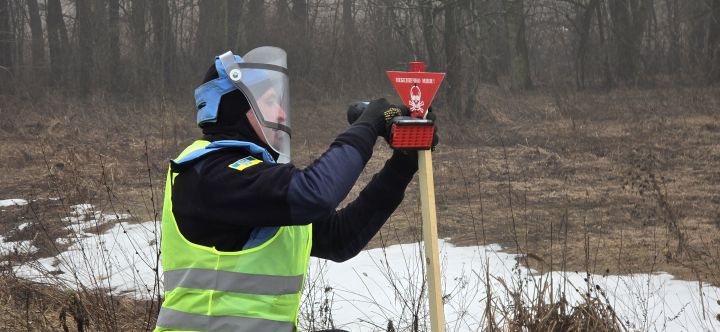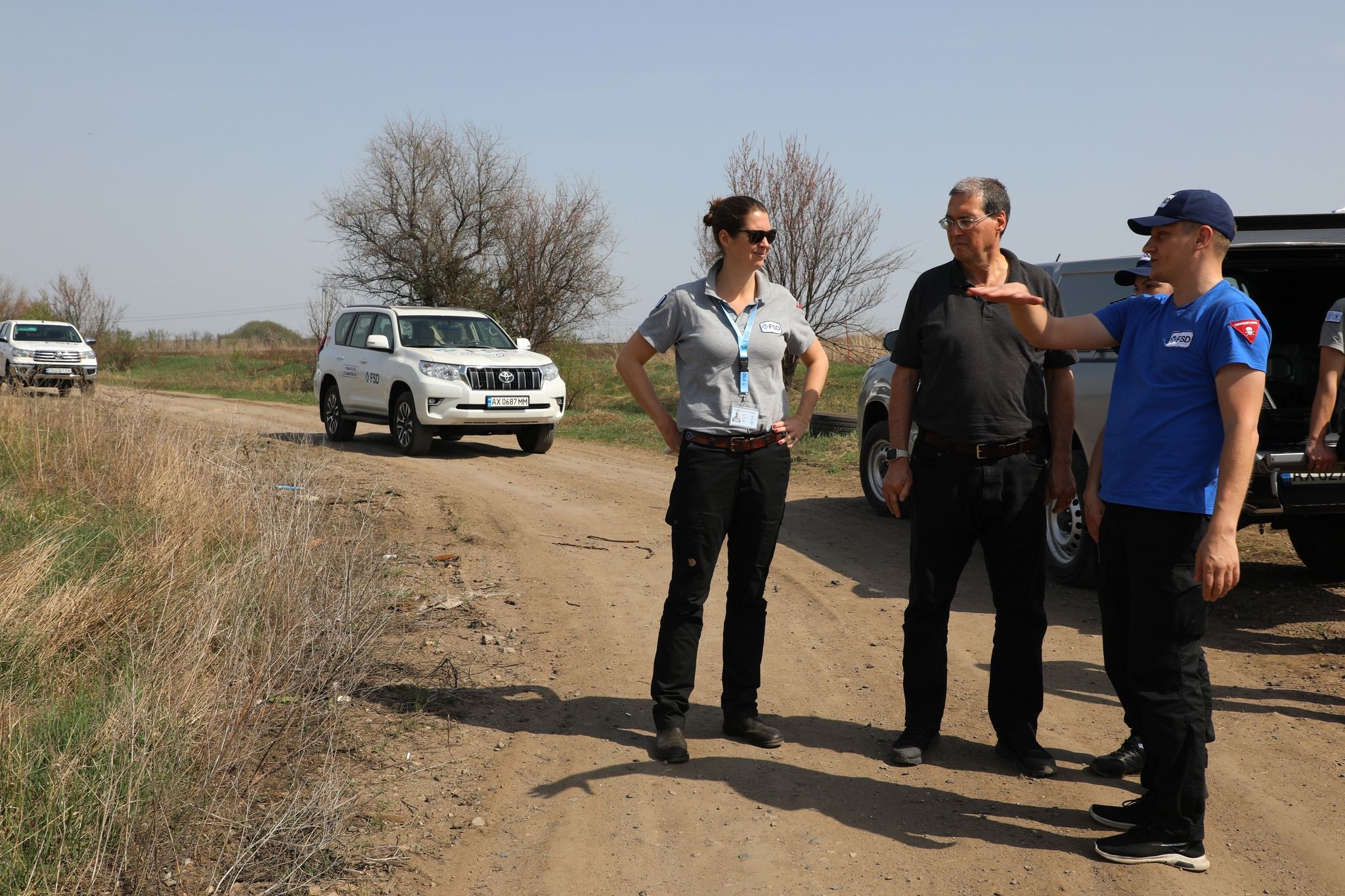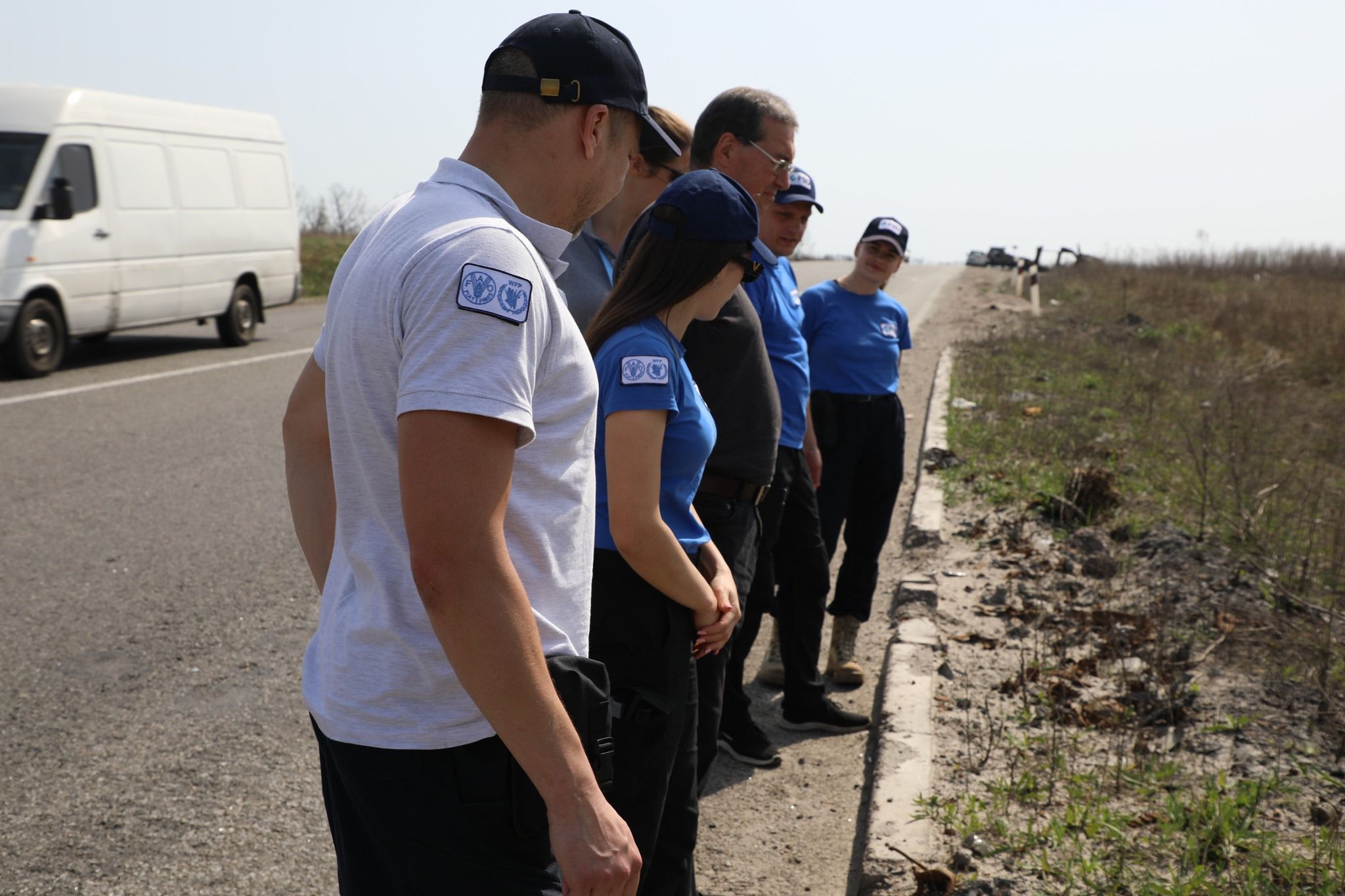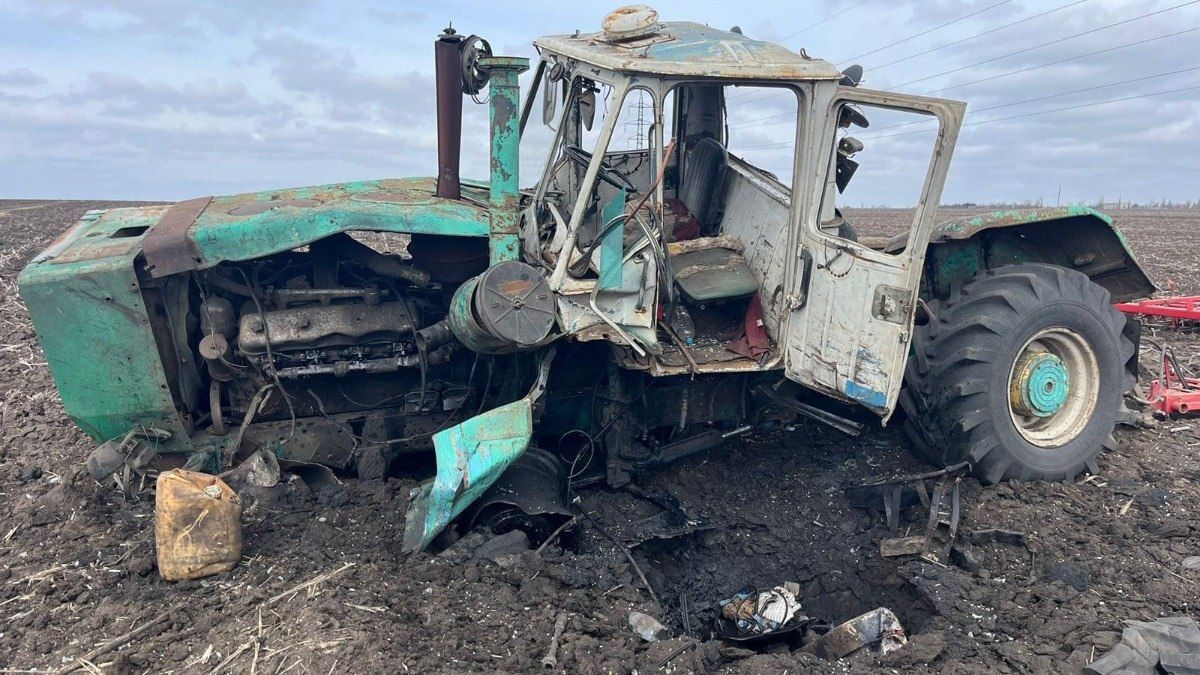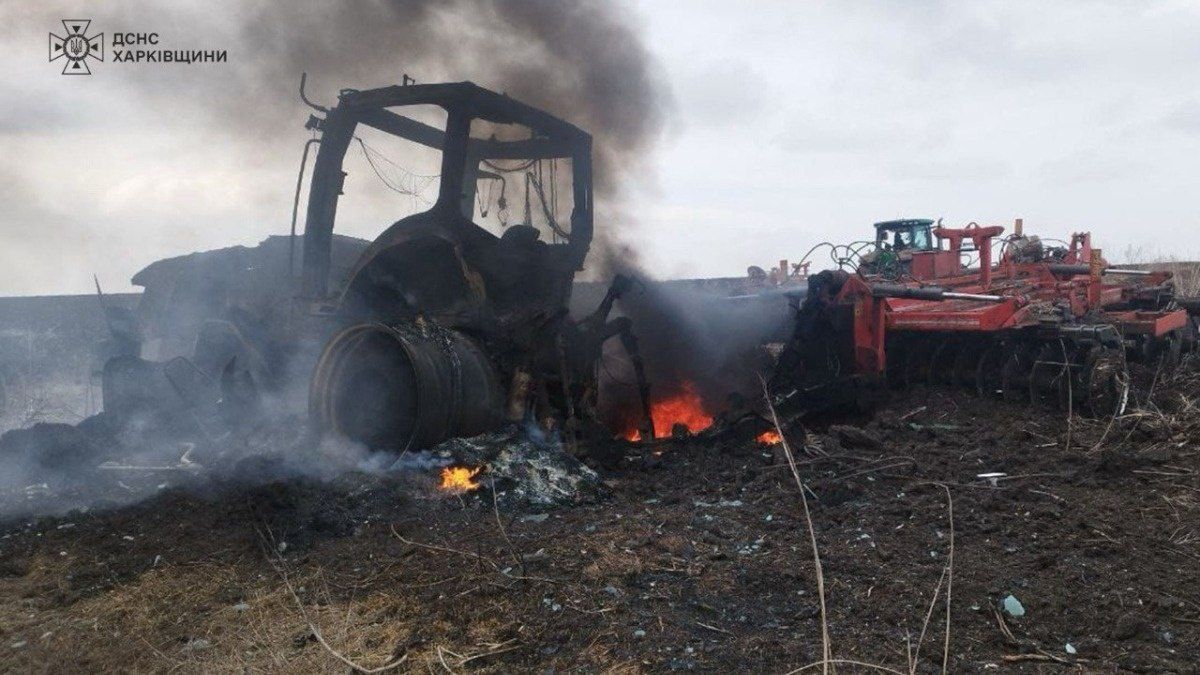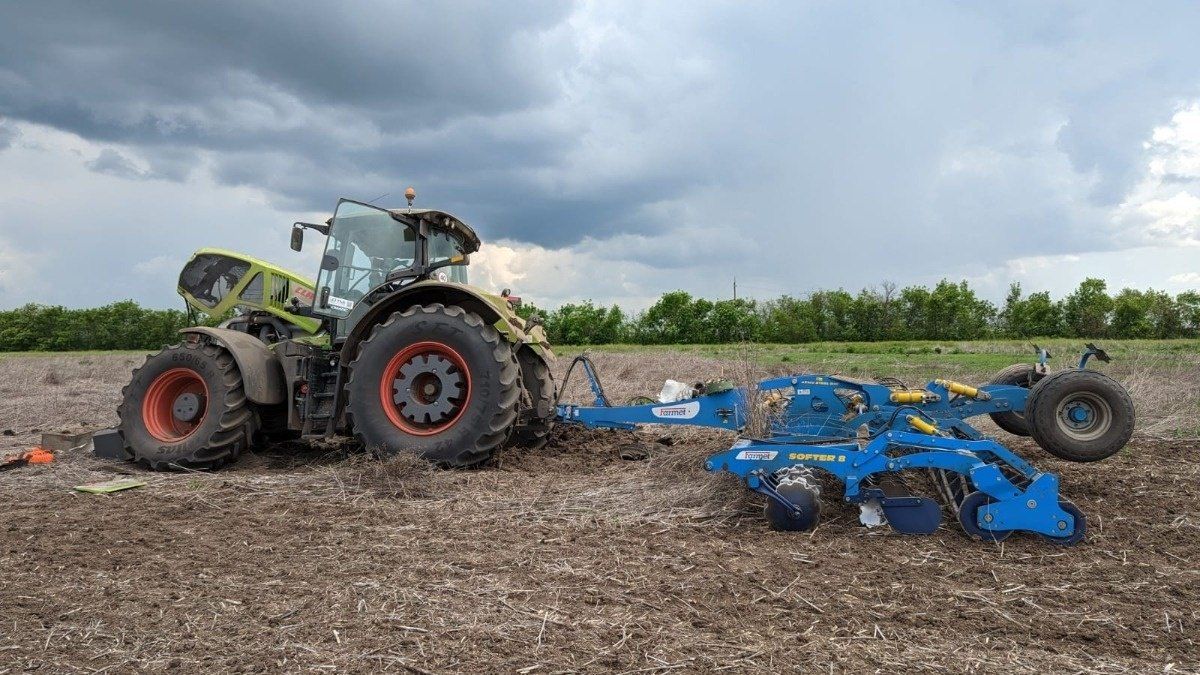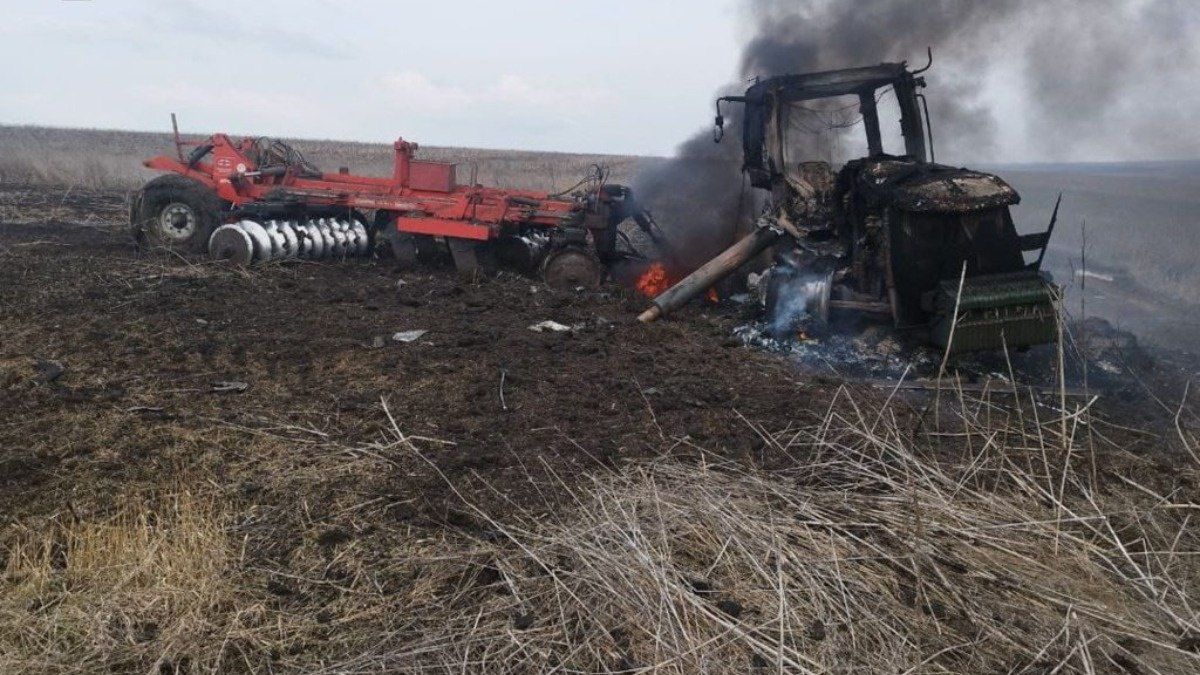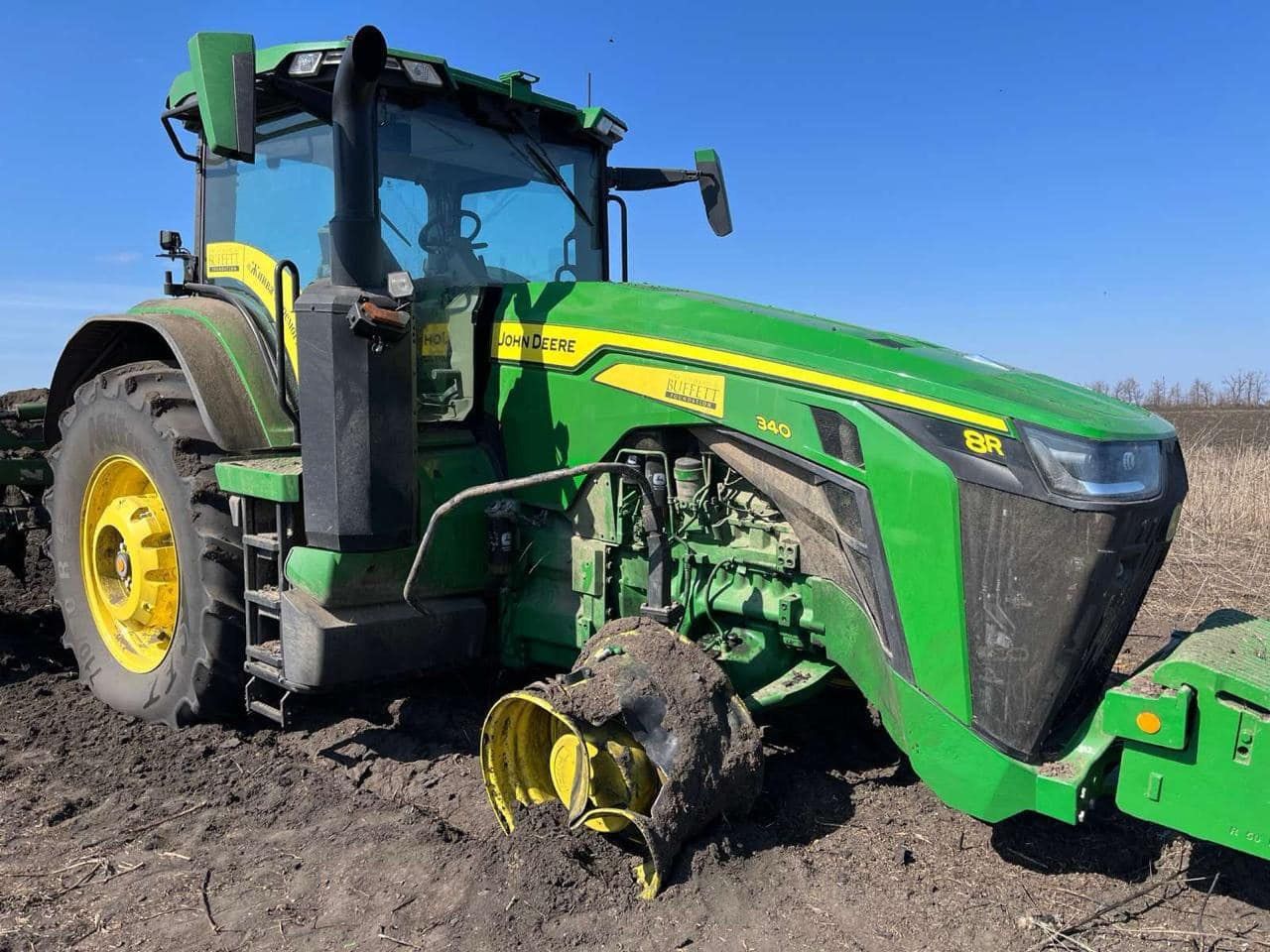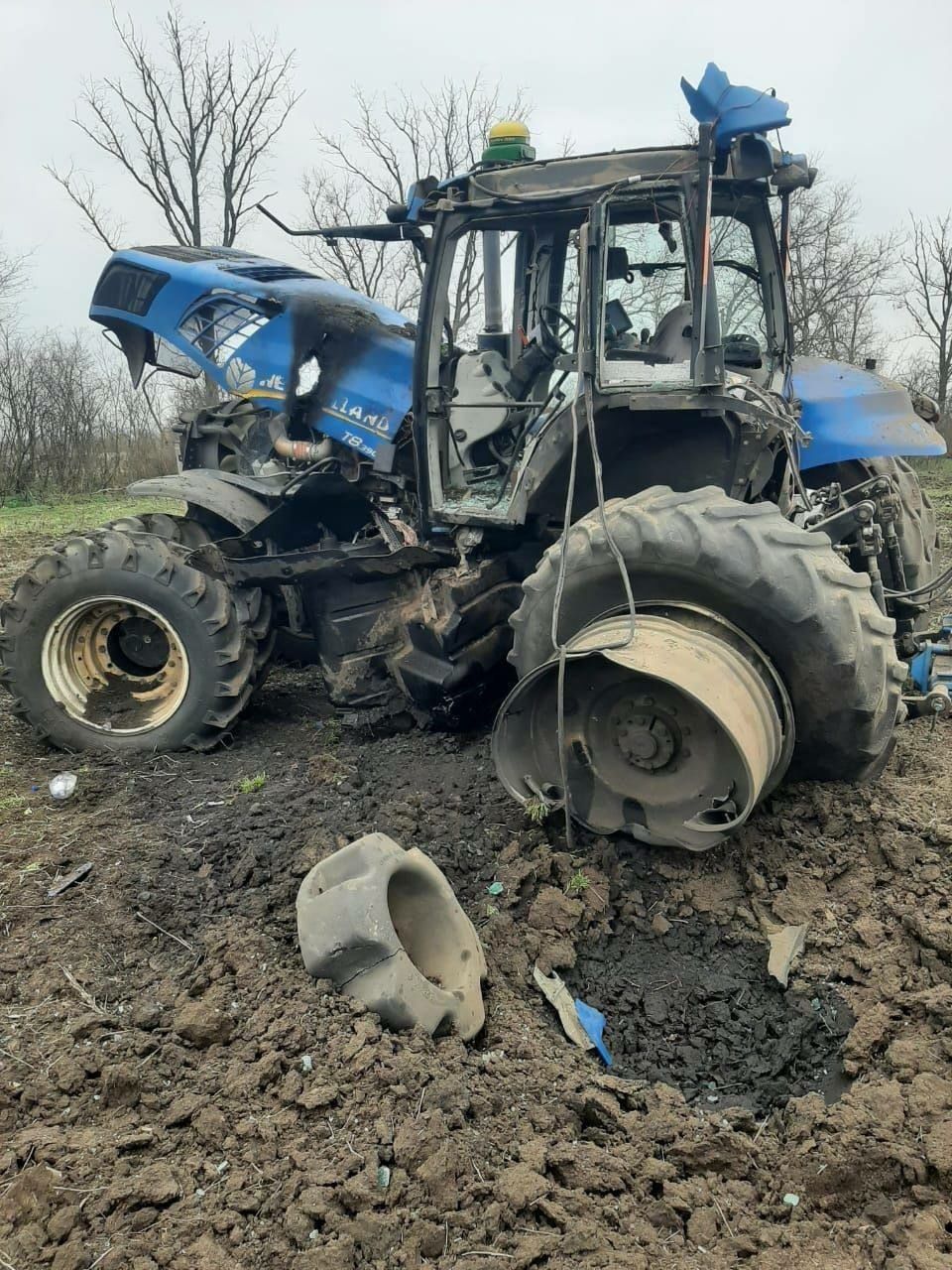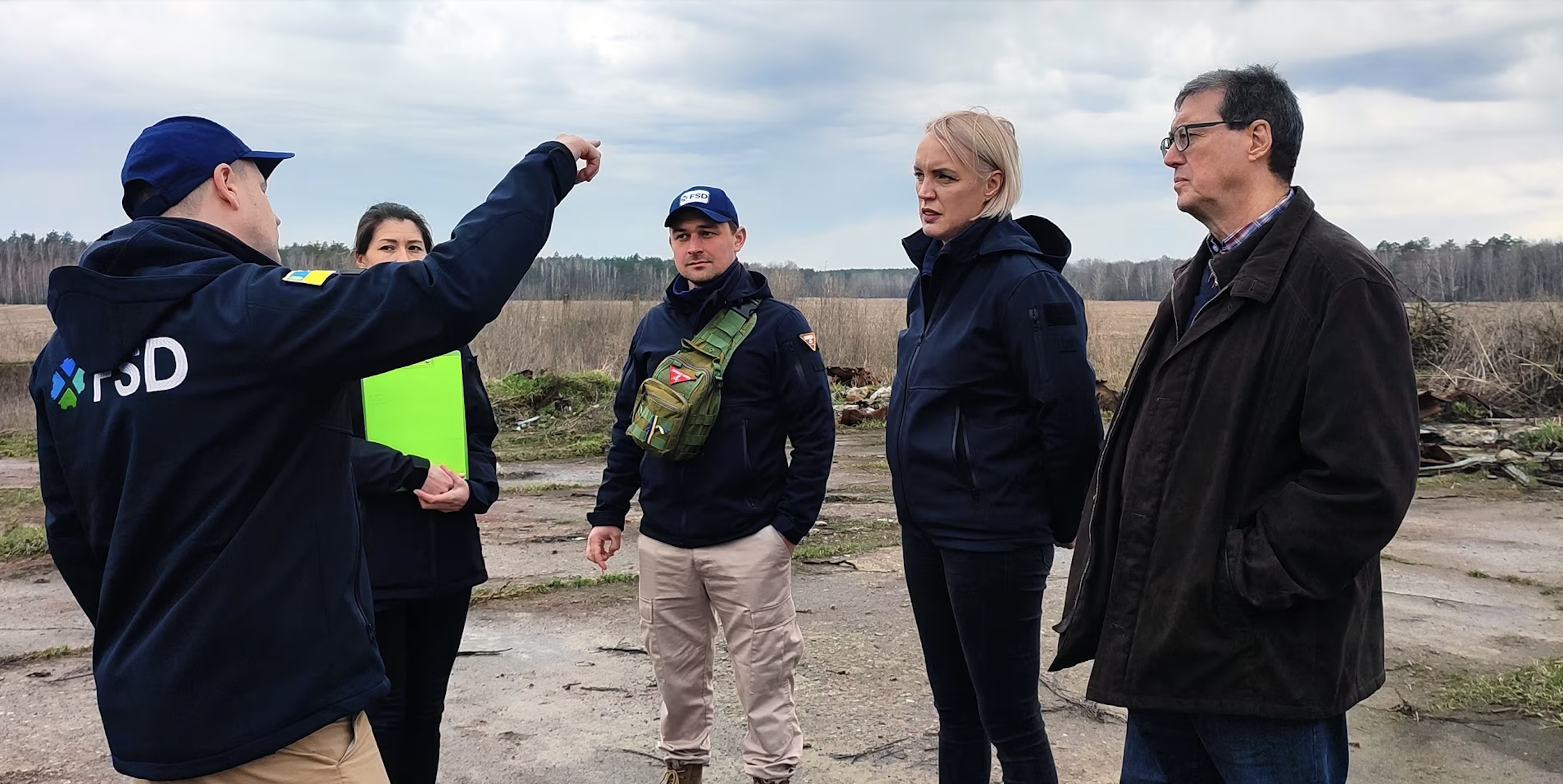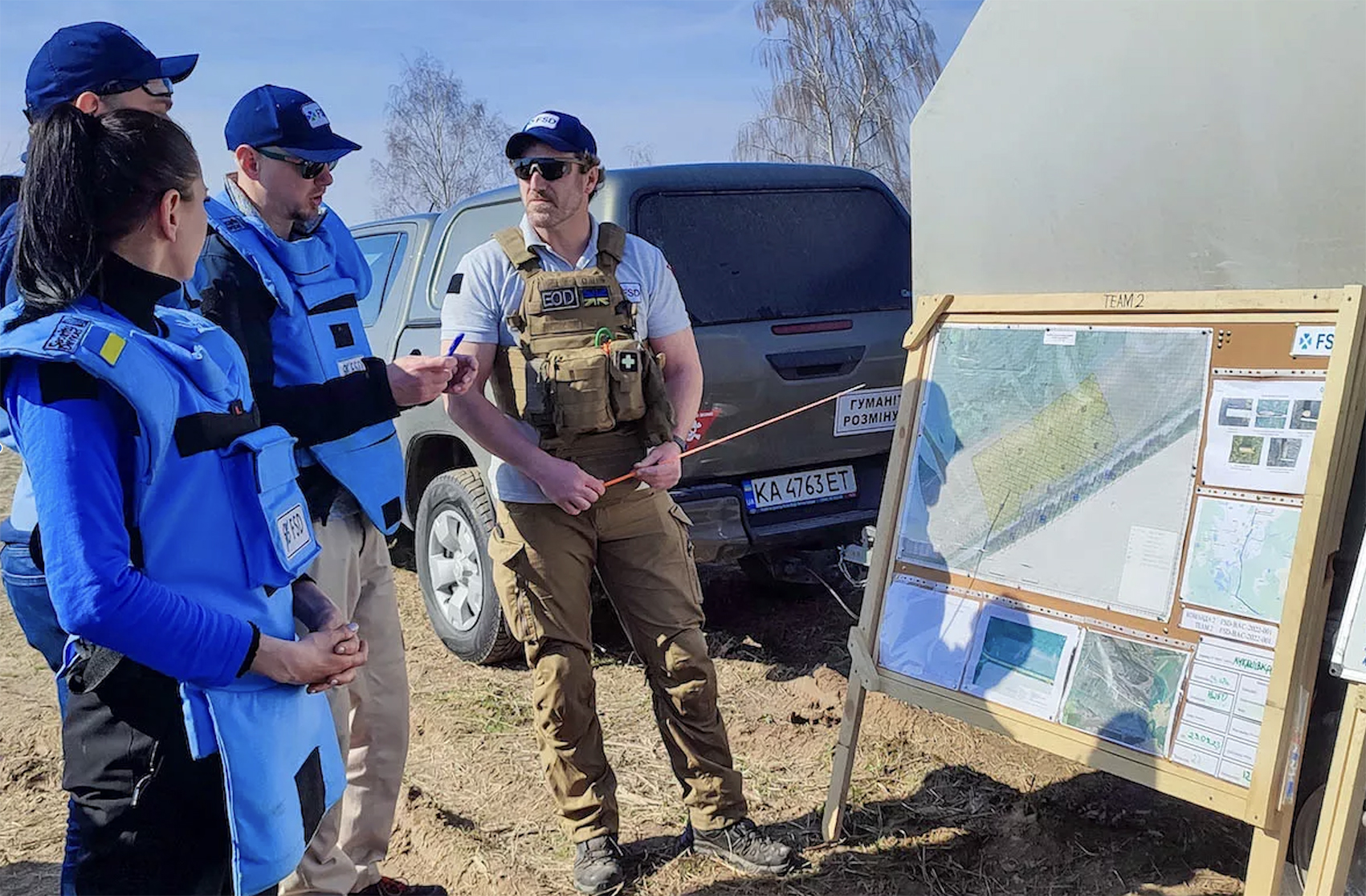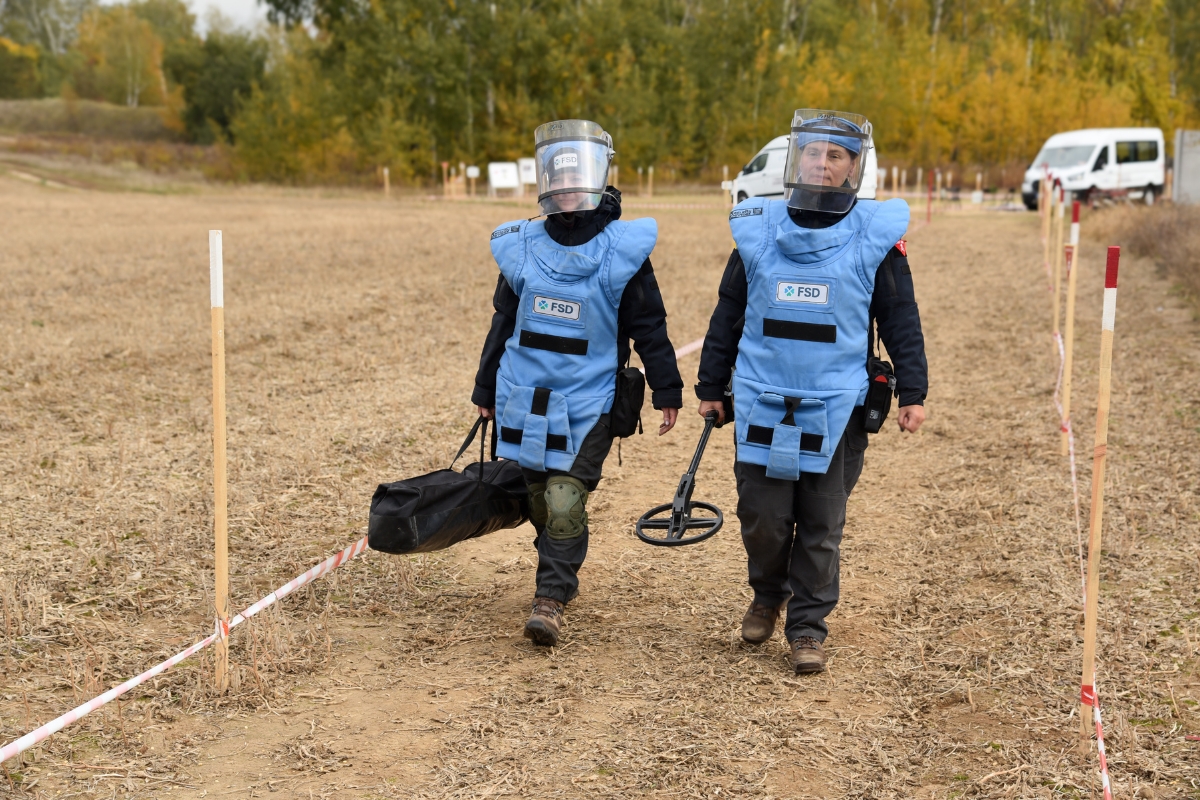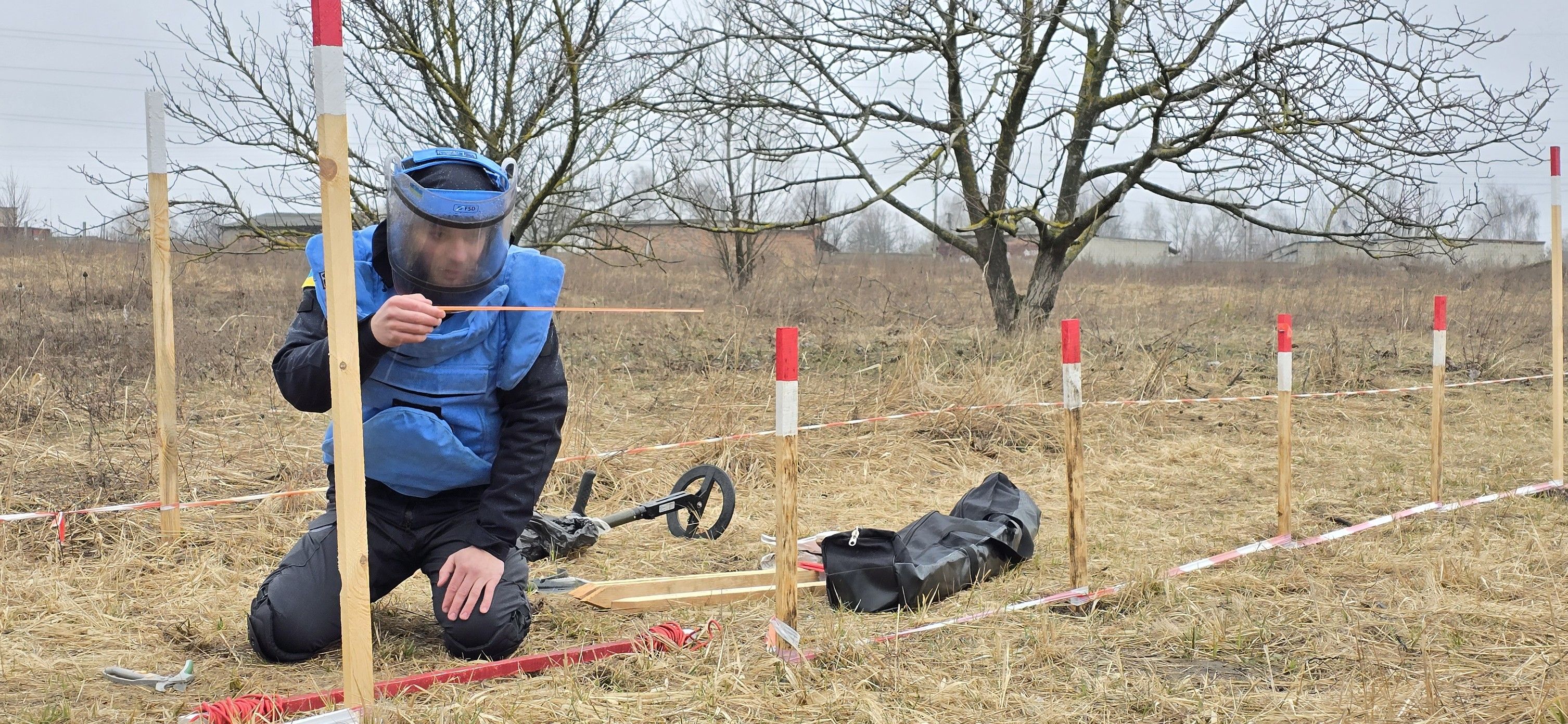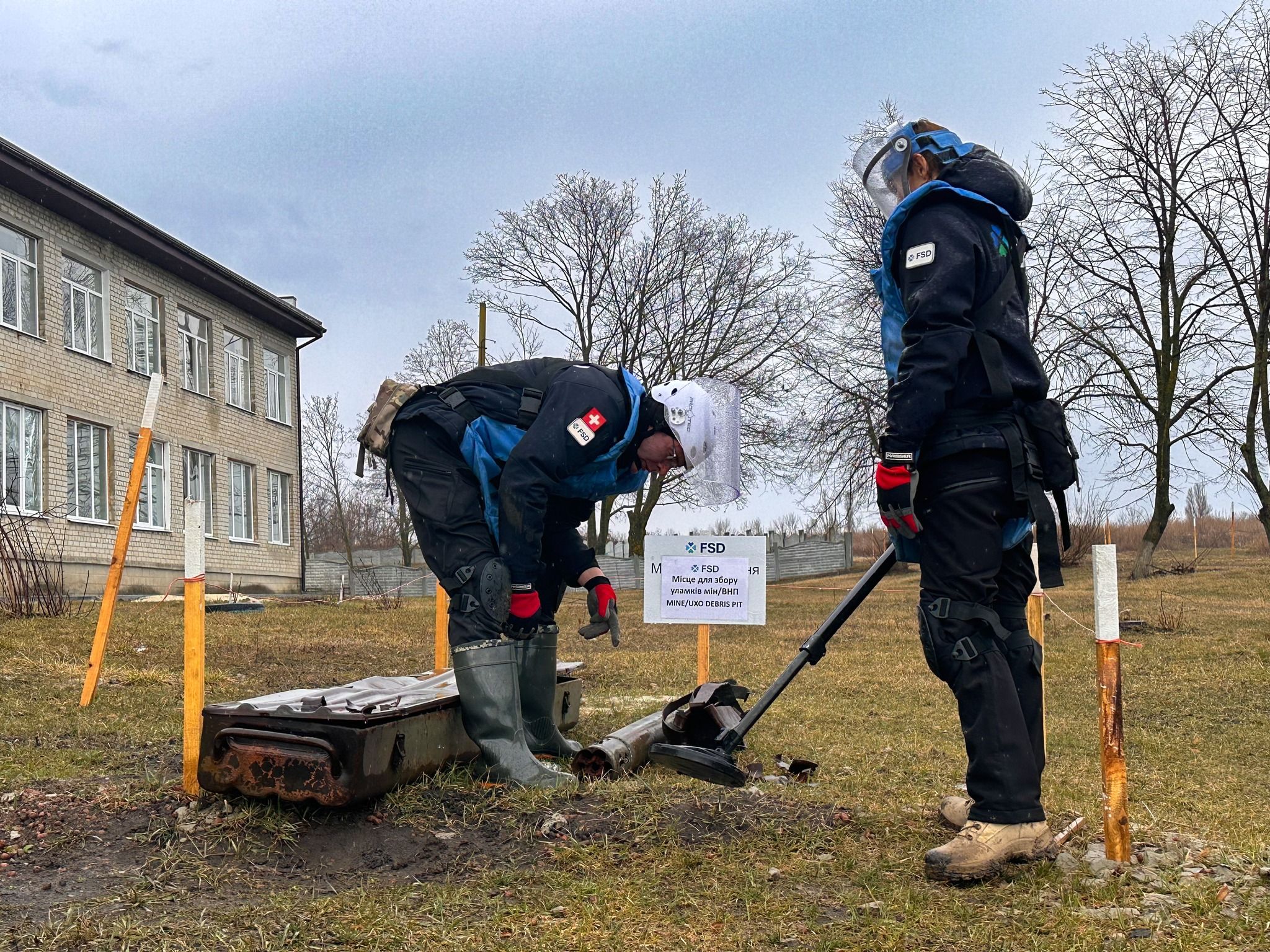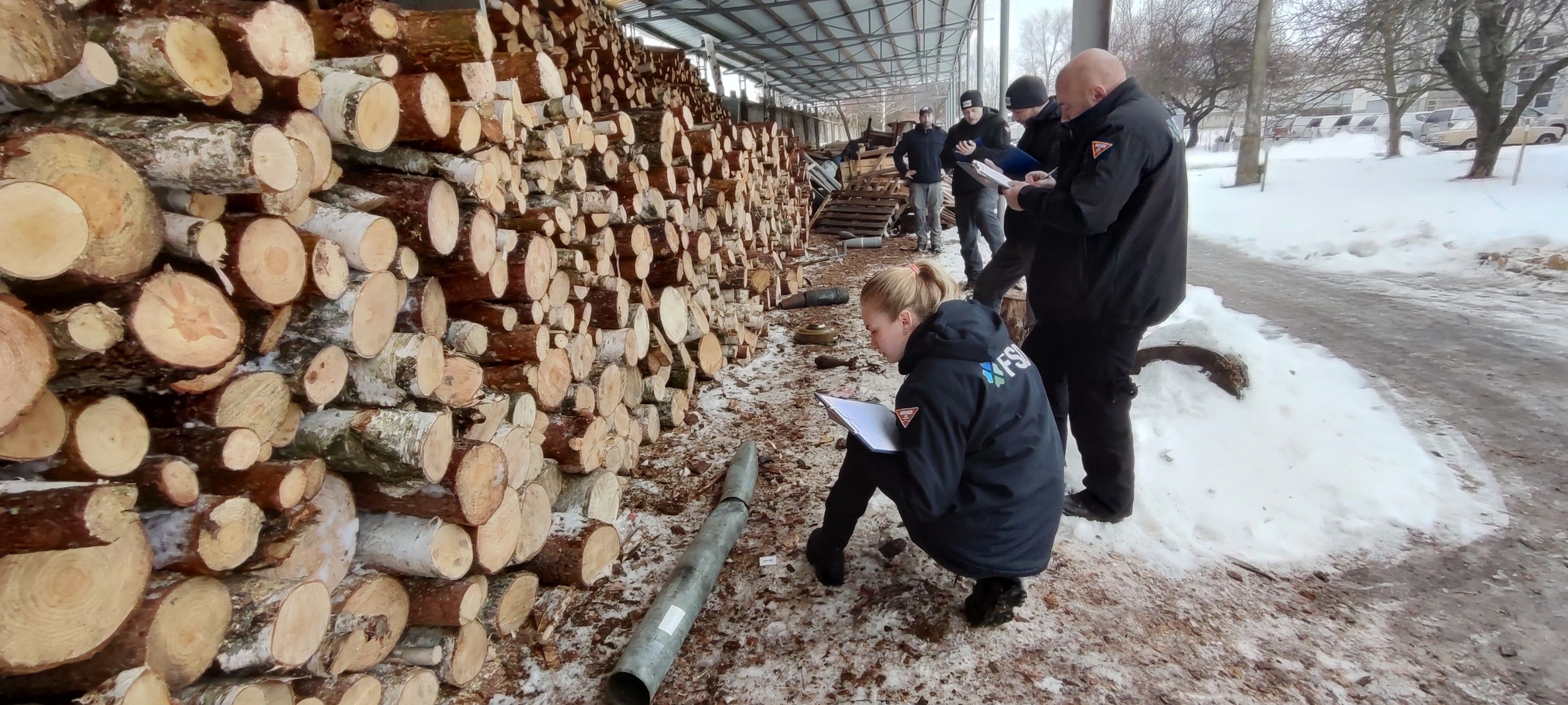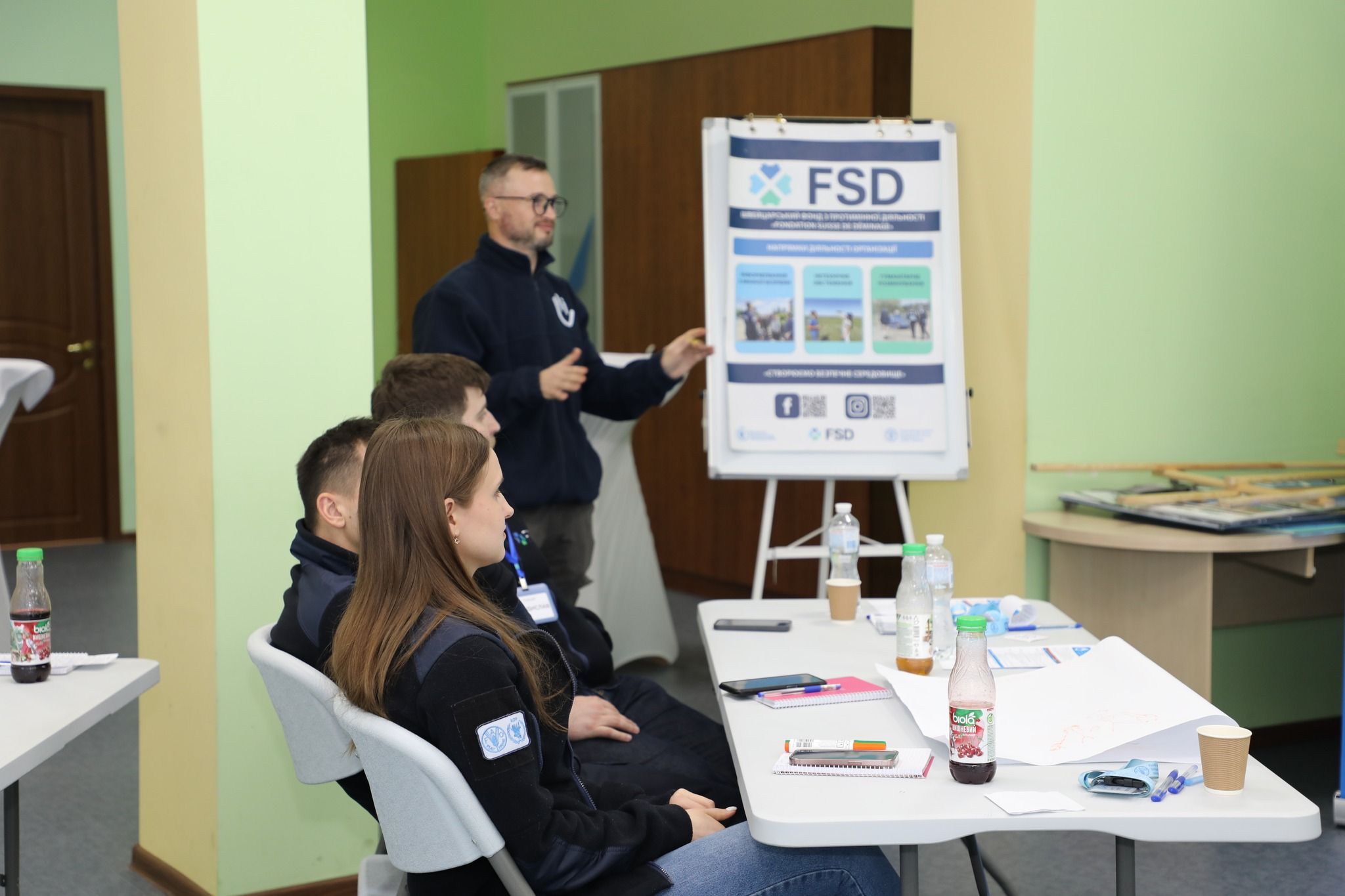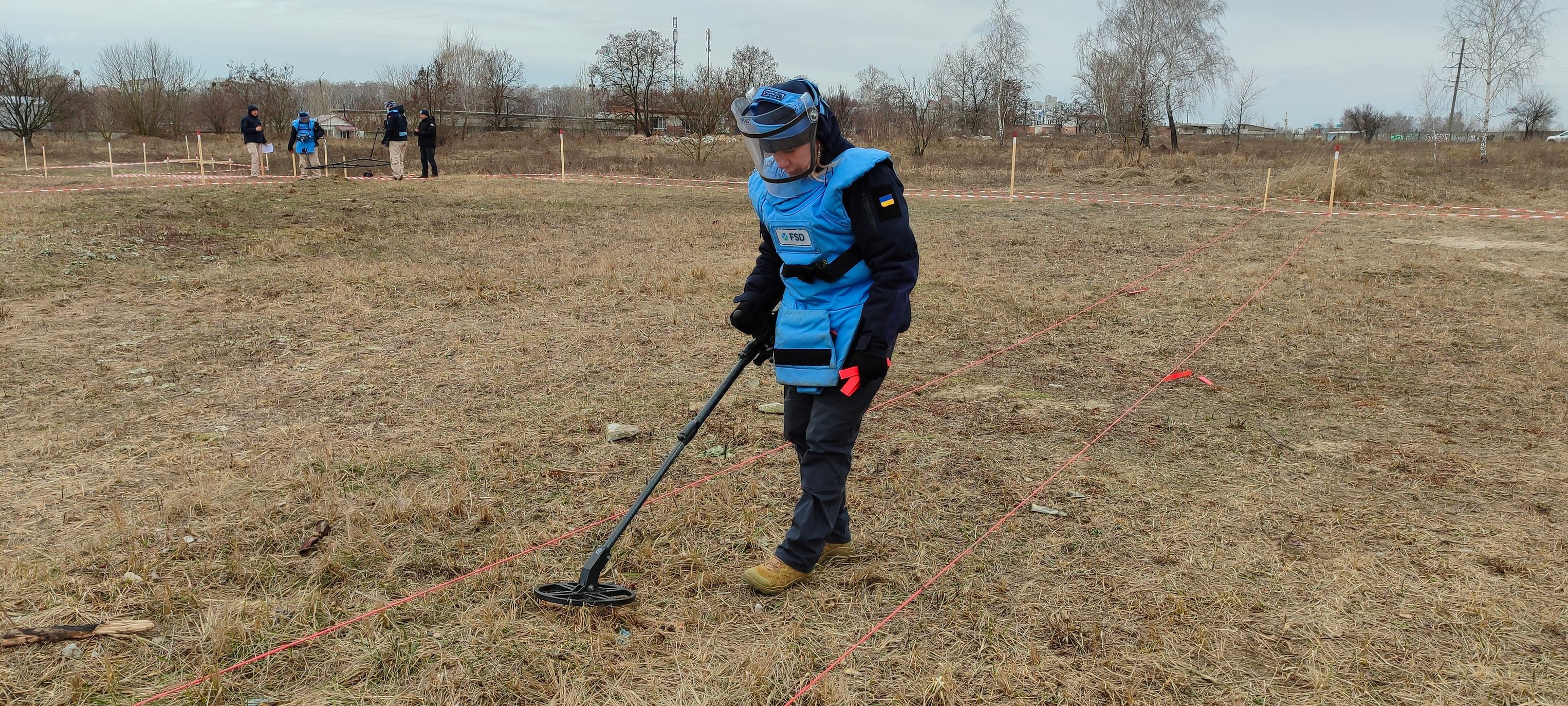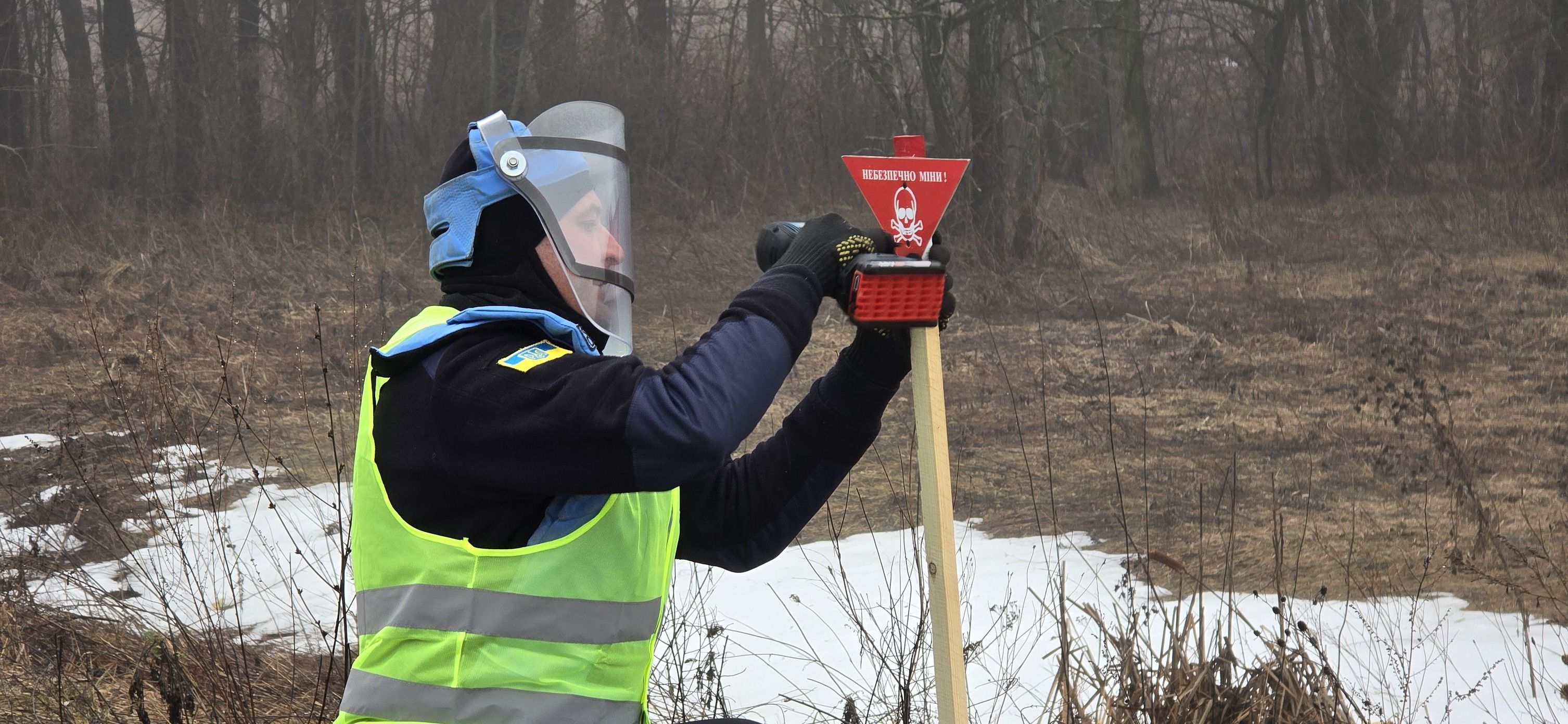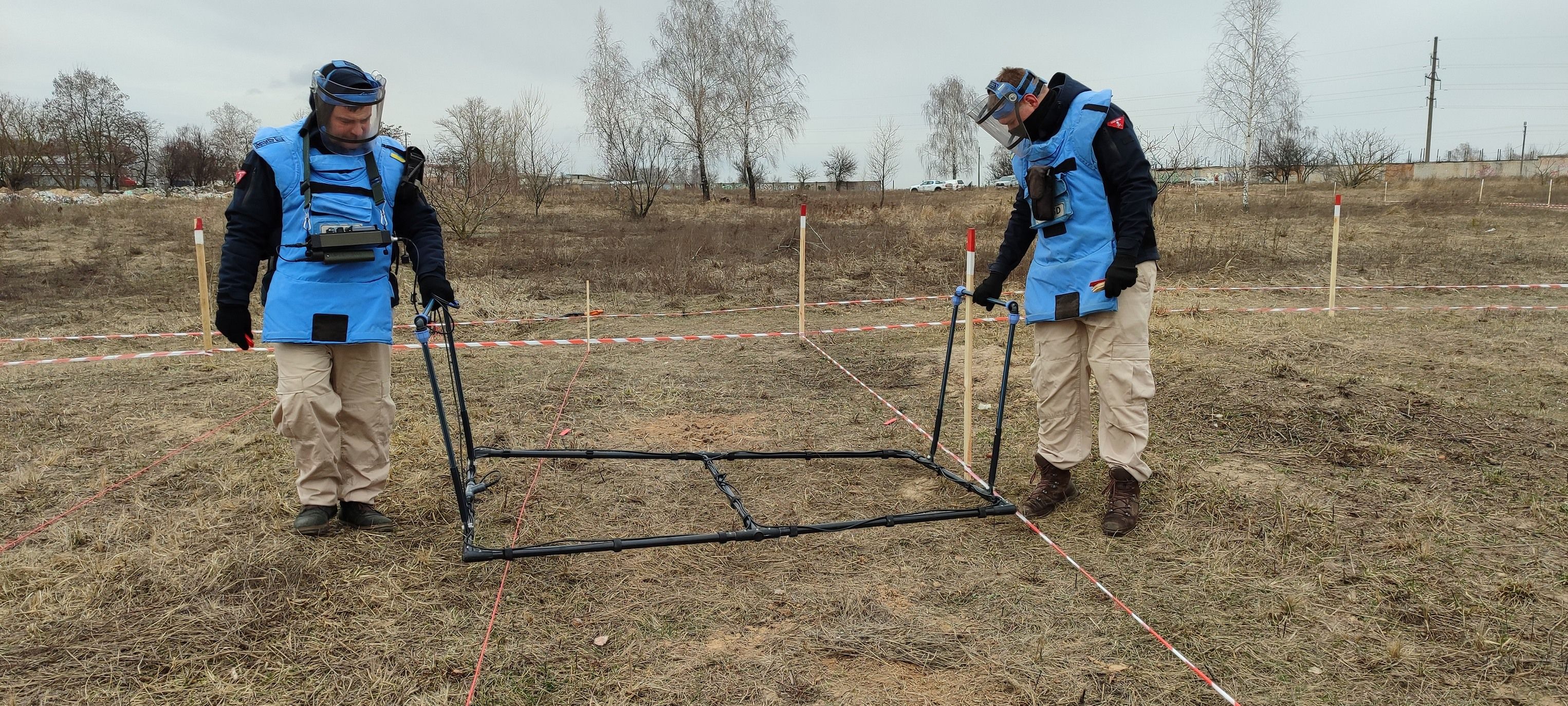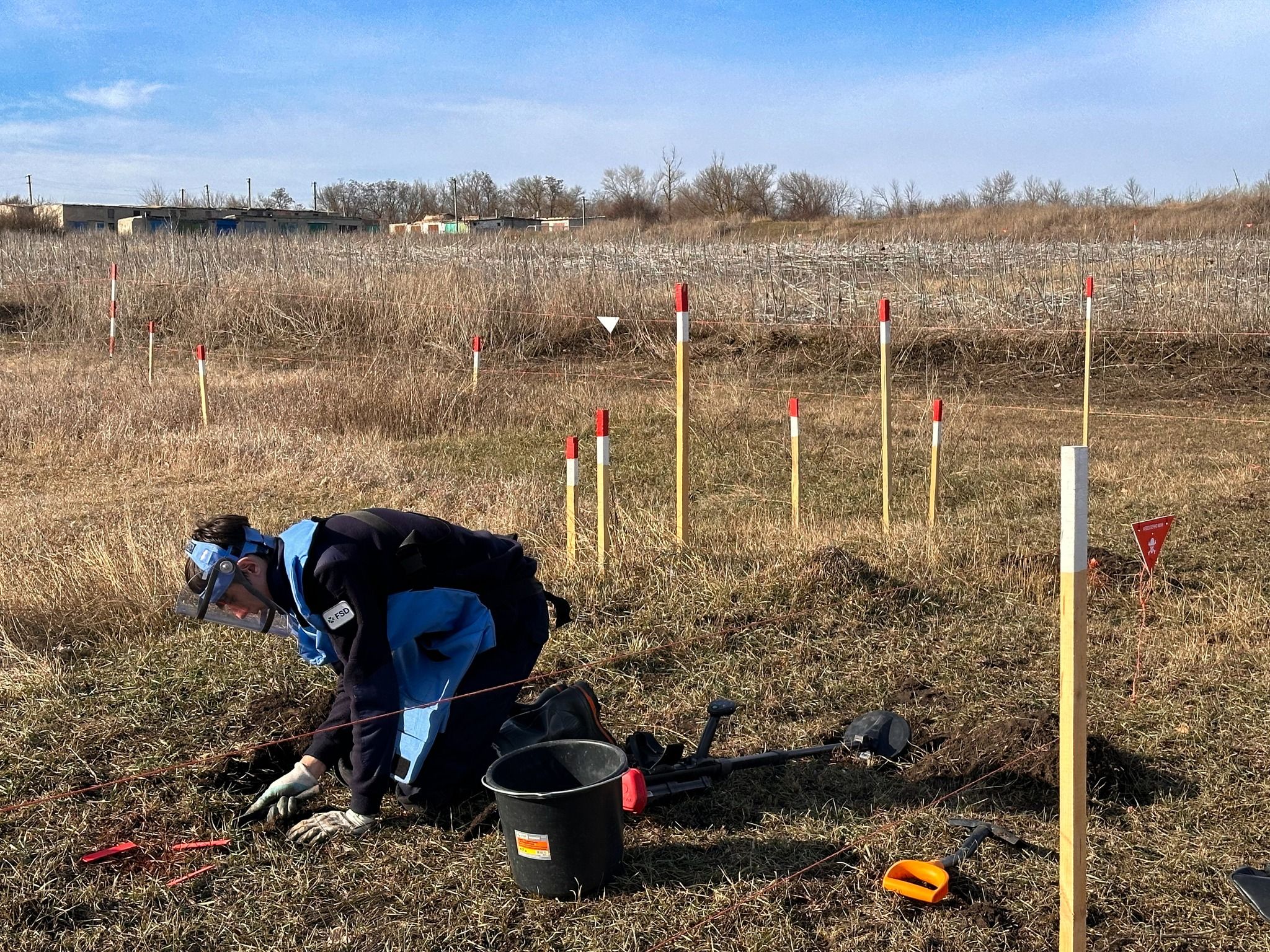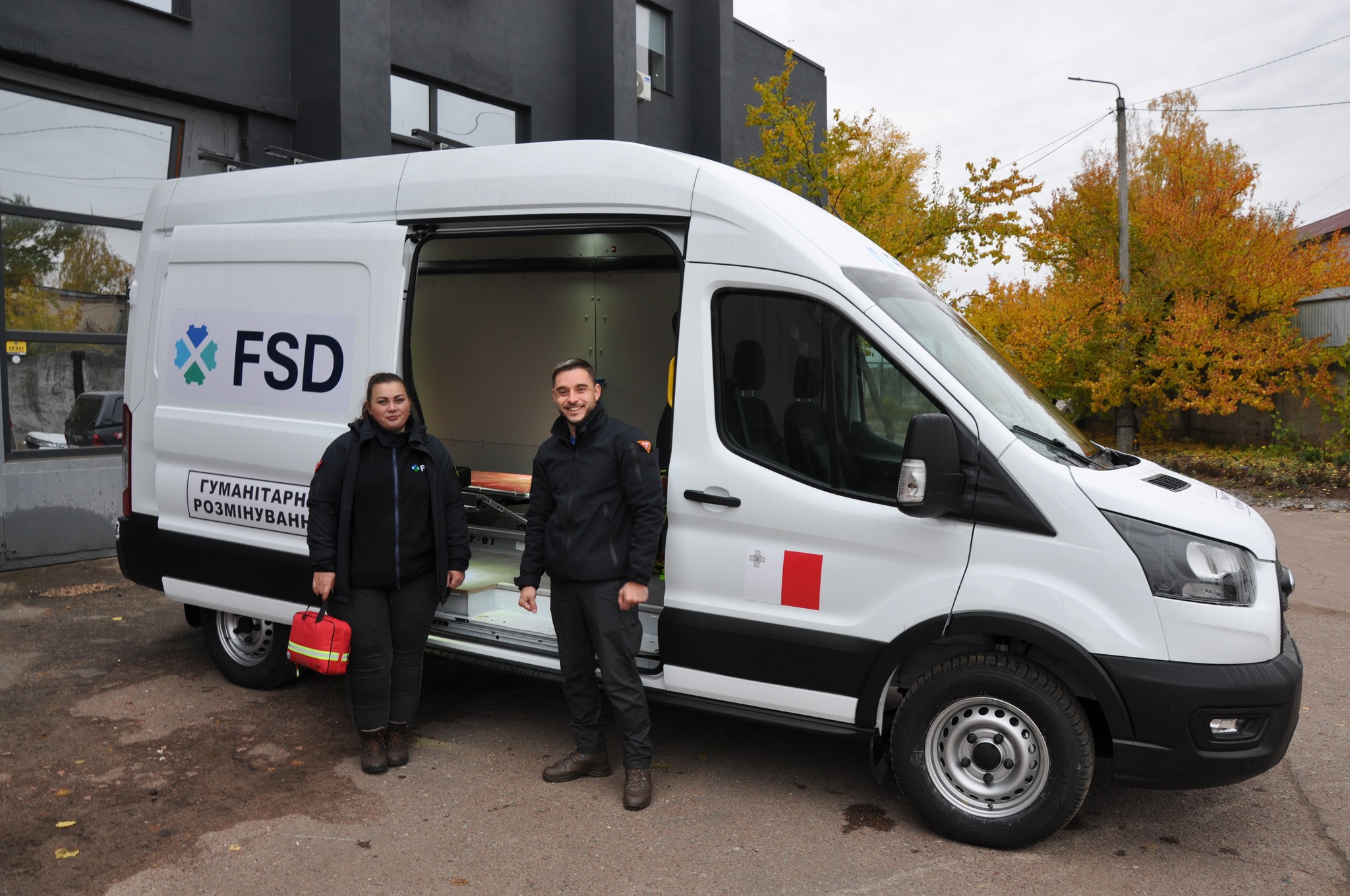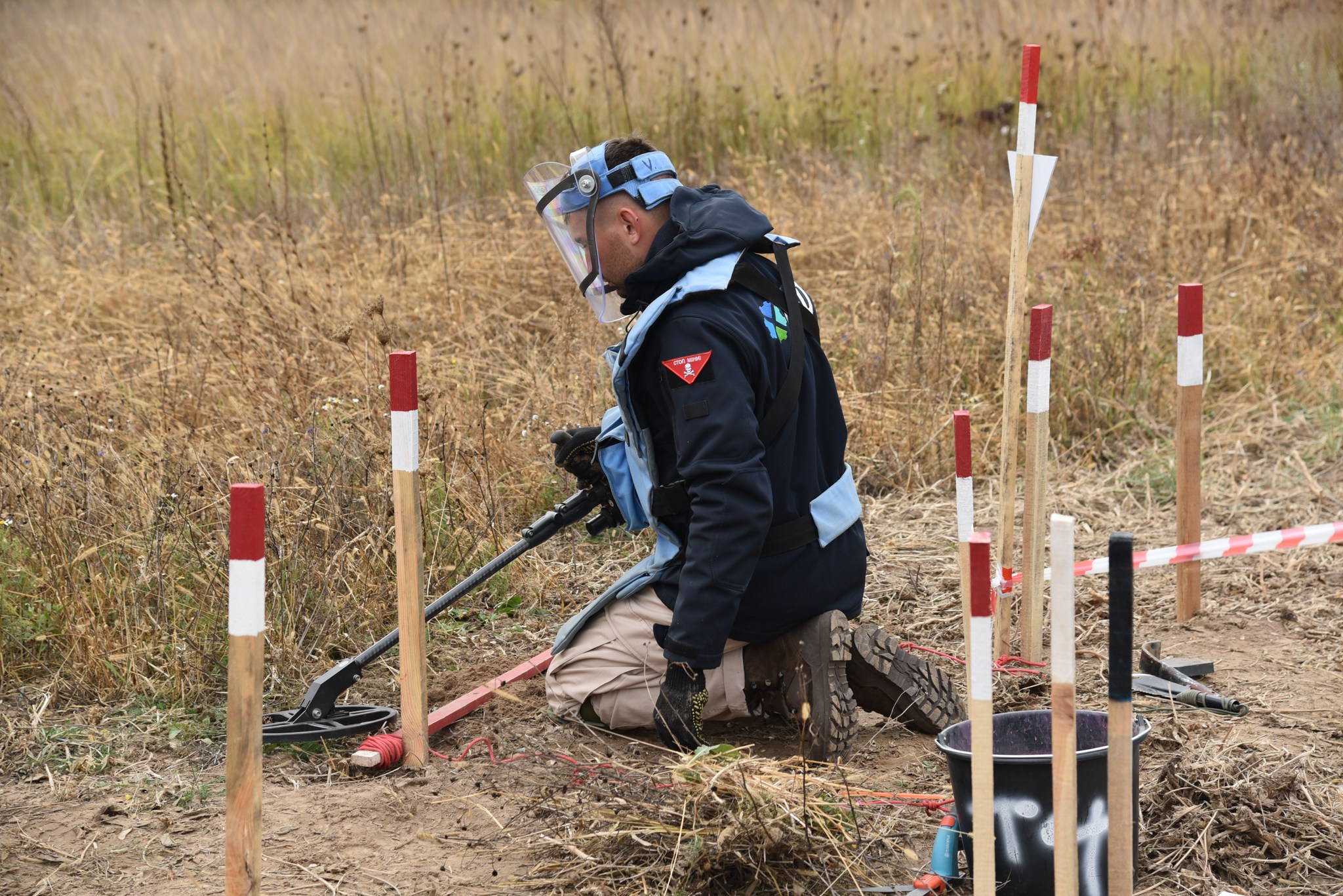Shall We Demine? FSD Ukraine Doubles Budget For Humanitarian Demining Project In Ukraine
The Swiss mine action NGO FSD does not require recommendations. Over the 27 years of its existence, it has ensured the clearance and elimination of numerous landmines and other ordnance in more than 30 countries. And, no less important, it contributed to the return of cleared land to agricultural use. Today, FSD is one of the world's most renowned international non-profit mine action organizations.
The foundation is also actively involved in humanitarian demining in Ukraine. Moreover, it obtained the official status of a mine action operator long before the full-scale invasion by the russian federation. In recent years, among other initiatives, in collaboration with the Food and Agricultural Organization (FAO) and World Food Programme (WFP), as well as the Military.feodal.online service, it has been implementing an agricultural demining project in Ukraine aimed at Ukrainian farmers.
We spoke with Hansjörg Eberle, director and co-founder of FSD, Eleanor Porritt, programme manager for FSD Ukraine and Andriy Demianovych, the founder of Military.feodal.online. We asked them what exactly FSD does in Ukraine, what kind of support Ukrainian farmers can receive from it, and what are the prospects for the humanitarian demining of lands in Ukraine.
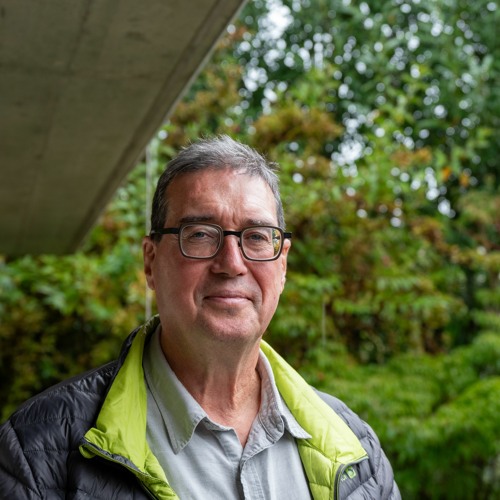
Latifundist.com: Hansjörg, how many years has FSD been working in Ukraine?
Hansjörg Eberle: FSD began its work in Ukraine in 2015 and over the course of 7 years—until 2022—it was one of only three mine action operators officially accredited in the country. Prior to the start of the full-scale invasion, FSD's operational teams were based in two cities in the Donetsk region—Mariupol and Slovyansk. During this time, its activities were focused on detecting and neutralizing landmines and unexploded ordnance in the areas along the former contact line.
Latifundist.com: What has changed in the activities of FSD in Ukraine after February 24, 2022?
Hansjörg Eberle: The situation has changed dramatically. First of all, we were forced to suspend demining activities along the contact line for several months. During this period, the activities of the FSD in Ukraine were focused on providing material assistance to people who suffered from the war and were evacuated from dangerous regions. After the partial de-occupation of the Ukrainian territories, the FSD concentrated its activities in the north and northeast of Ukraine. First, we set up a new major operations center in Chernihiv. Then we set up another one in Kharkiv. Both of these centers are actively working today and we are planning the extension of operations in Kherson and Donetsk oblasts in the course of the summer.
Latifundist.com: How did the work on the agrarian direction begin?
Hansjörg Eberle: Since many farmers in Ukraine were forced to cease or limit their activities, the representatives of FAO and WFP approached FSD with a request to develop a project to support Ukrainian farmers in anti-mine activities. As a result, this project is already being implemented in the Kharkiv region.
It is aimed at supporting small farms — with a land bank of up to 300 hectares, which are provided with free humanitarian demining services within the scope of the project, i.e. survey, safety assessment and clearing of land from explosive hazards.
Latifundist.com: Is this not the first project that FSD is implementing jointly with WFP?
Hansjörg Eberle: Yes, FSD has many years of experience in cooperation with WFP and holds the status of a partner. In the past, we have conducted demining programmes in partnership with WFP in Afghanistan, Iraq, Sudan, and South Sudan.
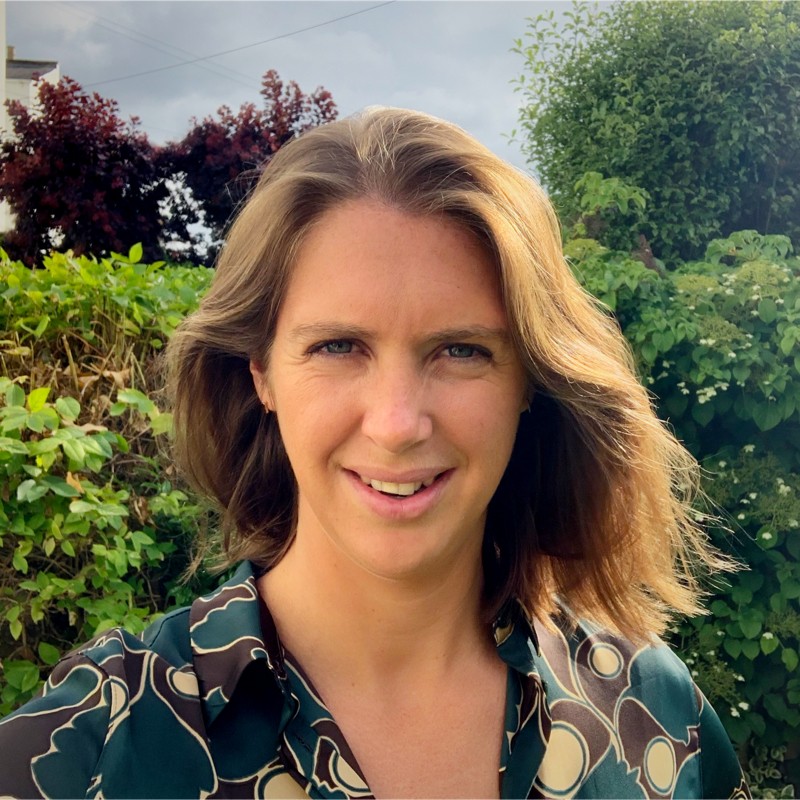
Latifundist.com: Compared to these conflict zones, do we have more issues in the agricultural sector?
Eleanor Porritt: The impact on agriculture in Ukraine is indeed acute. Farmers cannot cultivate their fields safely as it poses a risk to their lives and equipment. Consequently, they lose income and the ability to continue their activity. In essence, they find themselves on the brink of survival and require both state and international humanitarian assistance.
Further complicating the situation is the fact that demining is a very slow and expensive procedure, so for most farmers, this is a long-term problem with no quick-fix solution. This is precisely why some farmers, despite the risks, attempted to demine the fields themselves or plough them, which in many cases led to tragic consequences.
FSD in Ukraine. Algorithm and activity structure
Latifundist.com: And in terms of staff, new directions of work, what is the activity dynamics of FSD in Ukraine over the past two years?
Hansjörg Eberle: FSD has significantly increased the number of staff involved in Ukraine, We now have close to 500 employees in the country, which will grow to 600 by June, 90% of whom are Ukrainians recruited and trained locally. At the same time, we are gradually expanding the range of humanitarian demining activities. Specifically, among the operations carried out by FSD in Ukraine today, there is already the provision of appropriate machinery for clearing land from explosive hazards.
And most importantly, FSD's activities are not limited to the front-line regions of Ukraine, as the entire territory of the country is periodically shelled. Therefore, one of the focuses of our work is conducting educational activities by FSD teams in many regions of Ukraine — we aim to increase public awareness about the risks of mines. We also conduct research in various regions to monitor the current situation.
Latifundist.com: How many humanitarian demining FSD teams are working in Ukraine today?
Hansjörg Eberle: In 2023, there were 13 FSD teams operating in Ukraine for territory clearance. In 2024, the number of active clearance teams will more than double to 29.
Furthermore, in addition to the clearance teams, our organization also includes non-technical survey (NTS) teams and Explosive Ordnance Risk Education (EORE) teams. These teams educate farmers on assessing and preventing the risks of landmines and handling explosive devices during the respective courses.
Latifundist.com: How do these teams interact with each other, and what algorithm is used for landmine clearance in Ukrainian agricultural lands?
Hansjörg Eberle: The first stage involves a non-technical survey, which entails identifying areas contaminated with explosive items and areas free of contamination, mapping them, and marking them. The identification of areas not requiring clearance is equally important as the clearance itself.
Currently, five of our NTS teams are operating in Ukraine. They daily interact directly with local authorities and civilians. Naturally, all data collected by the NTS teams is input into a unified database within the Information Management System for Mine Action (IMSMA).
After mapping, priorities for demining areas with mines and ERW are determined.
As for land clearance, the classical scheme involves deploying two Battle Area Clearance (BAC) teams and one Mine Detection Dog (MDD) team consisting of four MDDs and four handlers. Additionally, specialized vehicles with detection systems and remote control are employed. This is the optimal structure for technical survey and clearance of high-priority hazardous areas where the presence of unexploded ordnance is expected.
Learn more: Long, Expensive, and Risky: How Demining of Agricultural Land Is Taking Place in Ukraine in the Second Year of the Major War
Latifundist.com: Is this scheme already fully operational in Ukraine in practice?
Hansjörg Eberle: Unfortunately, in 2023, we were unable to deploy the MDD team in Ukraine—we did not manage to obtain accreditation in time. However, in 2024, we will definitely attempt to do it.
And even one project is power
Latifundist.com: How many farmer-oriented projects does FSD implement in Ukraine today?
Hansjörg Eberle: Currently, FSD has only one project in Ukraine that is specific to farmers and agricultural land. This project is done in collaboration with FAO and WFP. However, firstly, I do not exclude that over time the number of projects aimed at assisting Ukrainian farmers will increase.
And secondly, today we are actively collaborating with the Ukrainian service Military.feodal. Thus, gradually, farmers' opportunities to demine their lands are expanding. Thanks to projects like Military.feodal, they can present themselves more effectively and constructively. And I hope that this trend will continue in Ukraine in the future.
Latifundist.com: By the way, Andriy, how did you find each other?
Andriy Demianovych: We met through the Military.feodal project and realized that we have a lot in common in our work. We can say that the partnership between us was programmed at the genetic level since we are engaged in one thing - humanitarian demining. In fact, the Military.feodal service acts as the first filter for communication between farmers and sappers. Turning to us helps the farmer to present himself, to bring his problem in a processed form to the sappers.
Latifundist.com: How do Ukrainian farmers perceive the FSD agricultural project?
Hansjörg Eberle: To convey value, time is needed. When a farmer's fields are mined and he is on the brink of bankruptcy, he won't delve deeply into evaluation of the benefits of various aid projects for him. He knows his field is mined and doesn't dwell on the details. Typically, we are met with positivity. The biggest disappointment for a farmer is when he realizes that his fields will not be demined tomorrow, and that this is a longer process than they expected. However, we are here to fulfill our mission - to clear the fields. If the farmer doesn't perceive it that way, we stick to our mission and see it through to the end.
One of the most pressing issues today is the designation by the Cabinet of Ministers of a substantial area of the country as part of the orange zone of mine danger. In this zone, according to the regulations in place, farmers are permitted to cultivate the land only after demining. Consequently, they are compelled to seek assistance from mine action operators.
Latifundist.com: What nuances arise here?
Hansjörg Eberle: The problem lies in the fact that the certification system for this activity in Ukraine is not yet fully developed and is essentially being implemented on an experimental basis. For example, the Cabinet of Ministers approved the mandatory certification of mechanized demining machinery and related equipment only a couple of months ago — in March 2024. Of course, all this makes it difficult for operators to enter the market. We can only hope that the situation will normalize in the future.
In addition, farmers are prohibited from cultivating the land in the orange zone. This can only be done after the farmer obtains a certificate of demining the land plot. And this is also a very difficult and not well-established procedure.
Key issues: war, scale, bureaucracy
Latifundist.com: In general, what are the biggest difficulties that FSD faced while working in Ukraine?
Hansjörg Eberle: First and foremost, humanitarian demining efforts in Ukraine are complicated by the ongoing war. Indeed, FSD has extensive experience working in countries with ongoing conflicts, such as Iraq and Afghanistan. However, conflicts in these countries are generally of a lower intensity. Europe has not seen such a large-scale military conflict since World War II.
As a result, the scale of contamination by explosive devices in Ukraine is immense. Furthermore, the use of state-of-the-art weaponry in the conflict zones leads to the contamination of land with new and lesser-known ordnance, complicating demining efforts.
Therefore, clear cross-sectoral coordination at the government level is essential for effective intervention in agricultural demining.
Clear cross-sectoral coordination at the government level is essential for effective intervention in agricultural demining
Latifundist.com: And what about bureaucracy? Have you encountered it?
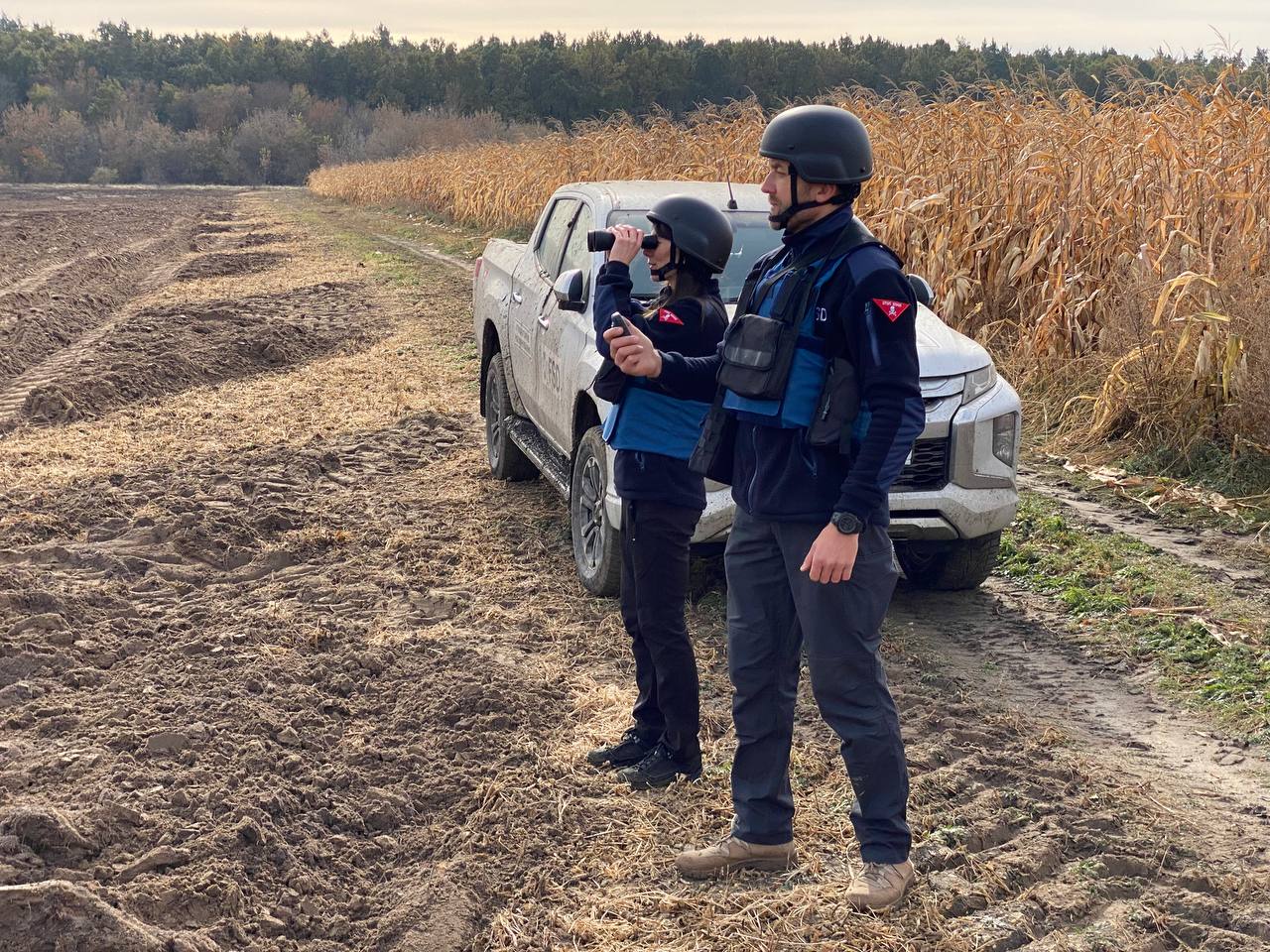 Hansjörg Eberle: Yes, this is another issue we have encountered in Ukraine. It's the overall system of state governance. Especially when it comes to the implementation of modern machinery and the adoption of new technologies, such as in the case of mine detection dogs. We also face difficulties with accreditation and registration. So, despite all the desire, it is impossible to quickly start working in Ukraine.
Hansjörg Eberle: Yes, this is another issue we have encountered in Ukraine. It's the overall system of state governance. Especially when it comes to the implementation of modern machinery and the adoption of new technologies, such as in the case of mine detection dogs. We also face difficulties with accreditation and registration. So, despite all the desire, it is impossible to quickly start working in Ukraine.
The situation is further exacerbated by numerous legislative barriers. Despite the fact that Ukraine has been in a full-scale war for the third year now, the country operates under peacetime legislation and norms, which significantly slow down, complicate, and increase the cost of various processes and negatively impact our work.
Who's picking up the tab?
Latifundist.com: Hansjörg, what model does FSD follow in its activities in Ukraine? Who funds the humanitarian demining conducted by your foundation?
Hansjörg Eberle: Funding for humanitarian demining conducted by FSD mainly comes from governments of various countries, among which the United States and Switzerland provide important support, and specialized UN agencies such as WFP and FAO. Additionally, among our financial partners are private funds and private Swiss donors.
Latifundist.com: And what about the agricultural direction?
Hansjörg Eberle: As for the agricultural project in Ukraine, it is funded by WFP and FAO, which actually initiated the project. They determine the priorities and formulate tasks for FSD. Currently, humanitarian demining of backyard plots in the villages of the Kharkiv region is a priority. Potential project participants, as I mentioned, include farms in the region, whose land banks do not exceed 300 hectares.
At the same time, FSD primarily conducts non-technical surveys (NTS) of small plots ranging from 10 to 20 hectares. This is deliberately done because such an approach allows for the gradual release of land for agricultural use, rather than waiting for the entire large plot to be surveyed.
After completing the NTS, we, together with representatives of WFP and FAO, determine the algorithm for land clearance. Currently, demining is focused on backyard plots. Overall, its scope is limited. We plan to fully engage in the clearance process this year. After clearance, an official land demining certificate is issued, which is transferred to the owner or community, after which the land can be cultivated.
Latifundist.com: How much has FSD already spent on humanitarian demining in Ukraine and what is the budget for 2024?
Hansjörg Eberle: The total budget spent on FSD operations in Ukraine from 2015 to 2023 amounted to $29 million. We estimate the budget for 2024 to be approximately 30 million Swiss francs, which is nearly $33.2 million. Additionally, WFP and FAO allocated $5.3 million in 2023 for the implementation of the agricultural project in Ukraine, which funded the work of 7 NTS teams and 3 clearance teams.
Certainly, these figures are not final. Despite Ukraine's current status as the country with the largest humanitarian mine action programme globally, there remains a need for additional financial support and the engagement of new institutional and private donors. The challenge is unparalleled, it is evident in the vast areas that still require humanitarian demining efforts. As new regions are liberated, this demand will only continue to grow.
Land surveying. The bill runs into millions
Latifundist.com: How much land have you surveyed already? How many hectares have you managed to return to farmers for farming?
Hansjörg Eberle: In 2023, FSD specialists surveyed close to 50 million square meters of potentially hazardous land in Ukraine, equivalent to 5000 hectares. During this time, more than 1,000 different explosive items were found and neutralized.
Latifundist.com: And in terms of quantity, how many farmers were you able to help?
Hansjörg Eberle: Unfortunately, we do not keep statistics on the number of beneficiaries by profession. The exception is our agricultural project, as it is focused solely on farmers. However, we do not yet have final figures regarding it as well.
In 2023, our activities in Ukraine mainly focused on the Non-Technical Survey (NTS) of land areas. We were able to remove some of these lands from the orange zone by declaring them free of explosive hazards.
Latifundist.com: Andriy, let's remind our readers, what is the total area of agricultural land in Ukraine that requires humanitarian demining measures? Because the numbers are different.
Andriy Demianovych: According to rough estimates, humanitarian demining needs to be carried out on an area of 2.4 million hectares, only on the territories liberated by Ukraine over the past two years. Taking into account the 20-kilometer zone from the front line, where humanitarian demining activities are prohibited by international and Ukrainian norms, this amounts to 1.6 million hectares.
It is extremely important for the field to be digitized. This increases the efficiency of planning demining activities: conducting non-technical surveys, marking surveyed fields, and prioritizing areas requiring technical survey and demining.
Latifundist.com: Feodal has been working with the land for a long time. Probably, it was not difficult for you to master a new direction.
Andriy Demianovych: 100%. Even before the start of the full-scale war, we digitized tens of thousands of fields in Ukraine and collected all the data in a unified information system. This includes fields located within the territories both occupied and de-occupied in Ukraine.
The technical side
Latifundist.com: Tell us about the technical side. Drones are increasingly being discussed as a tool to assist in demining. Do you use them?
Hansjörg Eberle: Yes, our non-technical survey teams are already utilizing drones for mapping and documentation. Furthermore, we have started to use drones for monitoring machinery directly during demining operations—work in the field.
Latifundist.com: Which direction is the demining machinery moving in general? What are you working on?
Hansjörg Eberle: We are working on the development of new technical solutions aimed at accelerating demining processes. In particular, we are testing the installation of large loop detectors on remote-controlled demining machinery for detection of unexploded ordnance, and soon we will also deploy locally manufactured rollers.
Additionally, we have commenced the deployment of specialized software that automatically integrates all data collected by our Non-Technical Survey (NTS) teams into a unified database: satellite images, drone-captured photographs, cadastral and agricultural information.
Furthermore, our database is integrated with the global Information Management System for Mine Action (IMSMA CORE), to which Ukraine joined in 2022 and is currently utilized by government authorities to coordinate all mine action activities in the country.
Humanitarian demining-2024: plans and funding
Latifundist.com: Hansjörg, what are FSD's plans for Ukraine in 2024?
Hansjörg Eberle: First and foremost, we plan to expand FSD's geographical presence in Ukraine — to cover more regions with our activities. Currently, we are fully scaling up our mine action project in the Chernihiv and Kharkiv regions and are in the process of establishing a new operational base in the Kherson region.
Overall, we plan to systematically increase our capacity by expanding the FSD staff in Ukraine, broadening the scope of our operational bases, and incorporating additional innovative technical equipment.
Latifundist.com: Eleonor, what are the plans regarding funding for humanitarian demining in Ukraine from international donors?
Eleanor Porritt: The funding for humanitarian demining in Ukraine for the year 2024 has been approved, with corresponding funds allocated by international donors. In comparison to 2023, it is expected to nearly double. Fundraising for land clearance activities in 2025 is still ongoing, but I am confident that both in 2025 and 2026, donors will ensure financing, including for the FSD project in Ukraine, at least at the current level. I hope that the project will continue to be funded in the future.
Latifundist.com: Can Ukrainian farmers expect to receive any financial assistance from international donors?
Eleanor Porritt: Under the United Nations World Food Programme, direct financial assistance to farmers is not provided. At least not at present.
However, for example, FAO is already implementing such a project. In December 2023, they initiated a programme to provide monetary aid to Ukrainian farmers whose land is contaminated with explosive substances. The farmers registered in the State Agrarian Register of Ukraine, who meet the criteria of the UN World Food Programme and FAO, will be eligible for assistance.
Kostiantyn Tkachenko, Valentyn Khoroshun, Latifundist.com

